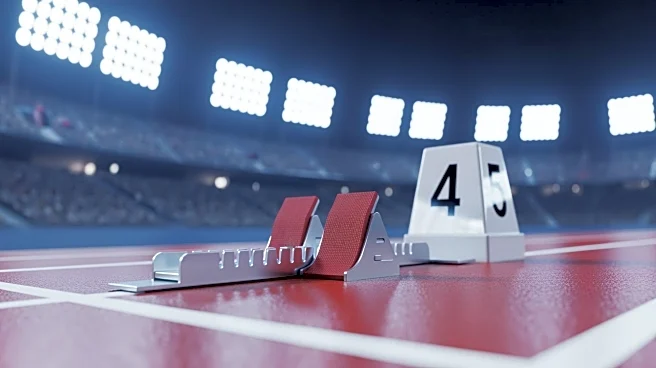What's Happening?
Sydney McLaughlin-Levrone, a dominant figure in American track and field, has consistently broken records in the 400-meter hurdles, setting a world record of 50.37 seconds at the 2024 Olympics. Her versatility
extends to the 200 meters and the open 400 meters, where she recently came close to breaking a 40-year-old world record. McLaughlin-Levrone and her coach, Bobby Kersee, are considering the possibility of competing in multiple events at future championships, including the 2028 Summer Olympics in Los Angeles. Her achievements have sparked discussions about her potential to attempt a double in the open 400 and 400-meter hurdles at major competitions.
Why It's Important?
McLaughlin-Levrone's continued success and potential to compete in multiple events could redefine expectations in women's track and field. Her ability to break longstanding records and compete across different distances highlights her exceptional talent and versatility. This could inspire a new generation of athletes and increase interest in track and field events. Additionally, her involvement in new competitions like the 'Ultimate Championship' and the Grand Slam Track league could influence the structure and popularity of track events, potentially leading to more opportunities and financial support for athletes.
What's Next?
With no global championship scheduled for 2026, McLaughlin-Levrone has the flexibility to pursue her goals, including breaking the 400-meter world record and competing in the long jump. The debut of the 'Ultimate Championship' by World Athletics, for which she has qualified, presents a new platform for her to showcase her skills. The future of the Grand Slam Track league, which faced financial challenges, remains uncertain, but McLaughlin-Levrone's participation could depend on its sustainability and financial stability.
Beyond the Headlines
McLaughlin-Levrone's career choices and achievements could have broader implications for the sport, including discussions on athlete compensation and the viability of new competitive formats. Her potential involvement in multiple events at the Olympics could challenge traditional training and competition strategies, influencing how athletes prepare for major championships. Her success also raises questions about the support systems and opportunities available to female athletes in track and field.








